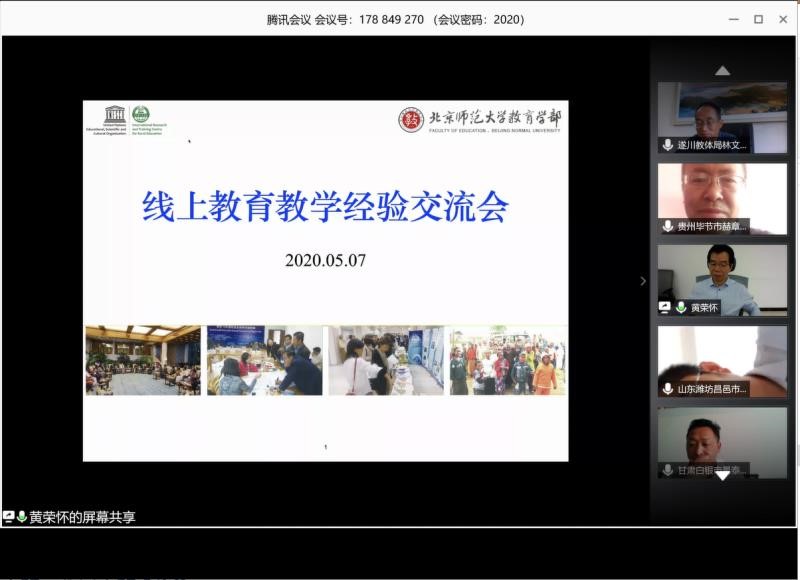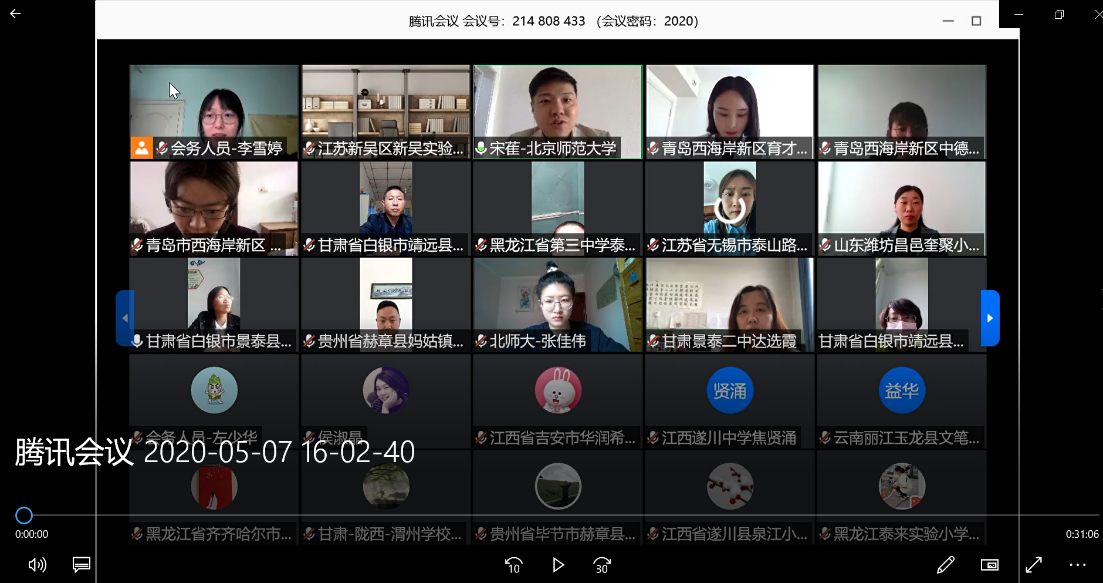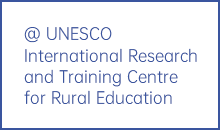On May 7-8, 2020, the Faculty of Education of Beijing Normal University (BNU) and the UNESCO International Research and Training Centre for Rural Education (INRULED) co-organized the Online Education Experience Sharing Session for Primary and Secondary Schools. Representatives from Beijing Chaoyang, Wuxi Xinwu District, Qingdao West Coast Development Zone, Shandong Changyi, Jiangxi Suichuan, Guizhou Hezhang, Heilongjiang Tailai, Gansu Jingtai, Jingyuan and Longxi, shared their “online education stories” from different perspectives. The session consisted of 6 parallel sessions for different stakeholders in education, including education bureaus, school principals, teachers, parents, secondary school students and primary school students. Besides, Yunlong County supported by BNU in targeted poverty alleviation attended the session. Also, Zhou Zuoyu, Vice President of BNU, delivered a speech at the session of school principals and Cheng Kang of the Education Section of Chinese National Committee for UNESCO participated in the whole session.

The session of education bureaus was moderated by Huang Ronghuai, Dean of the Smart Learning Institute and Director of UNESCO INRULED, discussing the local policy of online education and the realistic dilemmas. It found that online education developed by education bureaus generally followed the principle of "suspended class, ongoing learning". The graduating classes of middle and high schools took live-streamed classes, and the non-graduating classes adopted the "recorded class + teacher guidance" mode. For lower elementary school students, they mainly took quality education courses in reading, sports, etc.
The session of the primary and secondary school principals was moderated by Li Xingzhou, discussing about principles’ roles as implementer and technical instructor in online education. Principals pointed out that teachers gradually recognized the advantages of online teaching and their acceptance of adopting ICT in education increased significantly. Additionally, principals suggested that besides the vulnerable groups we know, students whose parents were assisting doctors in Hubei and on-duty police should be paid special attention.
The session of the teachers was moderated by Song Huan, focusing on the changing roles of teachers in online teaching. From classroom dominants to online teaching assistants, teachers realized that they should spend more time interacting with students. Also, the dedication of teachers was also magnified during the pandemic. For example, in Qingdao West Coast No. 2 High School, most students didn’t have access to printing, so the teachers delivered study materials to the students every week.
The session of the parents was organized by Li Yonglin from the Family Education Research Center of the Faculty of Education. Parents mentioned that they helped children study online during the pandemic. By "turning" into a classroom teacher, parents deepened their understanding of the classroom teacher and appreciated the hard work of the teachers.
In the student session, students from secondary schools were organized by Zhou Yixian and Zeng Xiaodong from the Faculty of Education of BNU, and students from primary schools were led by Zhang Lili and Du Liang. This session discussed the learning behaviors, interpersonal relationships, learning effects, online teachers and course evaluations. Despite the high level of teachers teaching online, students still wanted their own teachers to teach them because their own teachers could know them better. Besides, students from elementary schools expressed their change from excitement to boredom during online learning and also the conflicts with parents.
After the session, all the host teachers were overwhelmed by the fact that it was not we that gave instructions and advice to practitioners, but practitioners that showed us the rich educational practices far beyond imagination. More than 30 participating schools described to us the situation of "suspended class, ongoing learning", reflecting the adaptability, organizational capacity, and resilience of administrations, principals, teachers, parents and students across China. This session again proves that rich educational practices are the lasting source of inspiration for educational theory and research.














